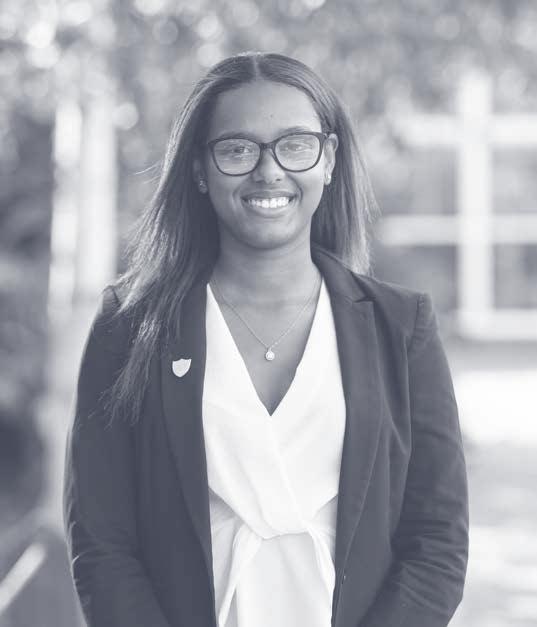
3 minute read
Religious Studies (Philosophy and Ethics
Examination Board: AQA Syllabus: 7062 Option: 2B
Why choose to study Religion, philosophy and ethics?
What is a good life? Do I have a soul? Is life suffering? What is virtue? In this course we will look at these crucial questions for human existence from a diverse range of perspectives. You will learn about one of the world’s most loved and often misunderstood belief systems, and explore ideas that challenge our understanding of the life and the universe. During the course you will learn in the following ways: • Discussion and debating–this involves sharing your ideas and listening carefully and reflecting on the ideas of others in order to reach a better understanding • Making notes – this is a vital skill whether in school during lessons or in private study time- this will ensure you have the information needed to prepare you for the assessments • Essay writing skills – this will help you to communicate your ideas clearly and coherently. It will also prepare you well for Year 13 assessments which involve extended written answers • Reading – this course is demanding and requires you to be able to read extensively both in class and outside lesson time. As well as textbooks reading journals, magazines and newspapers will assist your progress as well as depth and breadth of understanding • Film and discussion programmes are extensively used to support your learning • Student presentations are used to encourage responsibility and deepening your knowledge of the course content. The preparation of these allows you to develop your individual research skills which will be valuable later • Visits and visitors are arranged to help you understand the importance of the topics we study outside the classroom. We take advantage of the rich religious and cultural opportunities that living in London provides
Each component is assessed with an individual 3 hour exam (100 marks each).
Component 1: Philosophy of Religion and Ethics
Section A: Philosophy of religion • Arguments for the existence of God • Evil and suffering • Religious experience • Religious language • Miracles • Self and life after death. Section B: Ethics and religion • Ethical theories • Issues of human life and death • Issues of animal life and death • Introduction to meta ethics • Free will and moral responsibility • Conscience • Bentham and Kant.
Component 2: Study of Religion and Dialogues
Section A: Study of religion – Christianity (2B) • Sources of wisdom and authority • God/gods/ultimate reality • Self, death and the afterlife • Good conduct and key moral principles • Expression of religious identity • Religion, gender and sexuality • Religion and science • Religion and secularisation • Religion and religious pluralism.
Section B: The dialogue between philosophy of religion and religion. How religion is influenced by, and has an influence on philosophy of religion in relation to the issues studied.
Section C: The dialogue between ethical studies and religion. How religion is influenced by, and has an influence on ethical studies in relation to the issues studied.
Career opportunities
Studying Religion, Philosophy and Ethics at A Level forms superb preparation for further education, a variety of careers, as well as life in general. The knowledge and understanding gained provides an excellent platform for anyone interested in going into, for example: journalism, law, medicine and the arts. In addition, the skills learned will be vital for anyone who wishes to work with people, or those who will have to make important decisions or form strong opinions. This might include, for example: the civil service; social or community work; publishing or broadcasting; business, industry and commerce; or education.
“I am studying Philosophy, Religion and Ethics in Sheffield and so far my course seems very interesting. A lot of the modules I’m doing now, we’ve actually learnt them in A Levels such as Matters of life and Death. So I already have a head start. Thank you for teaching me the course because I’ve enjoyed it so much! Hopefully in my third year, I’m looking to do a conversion course into Law.”
STUDENT









